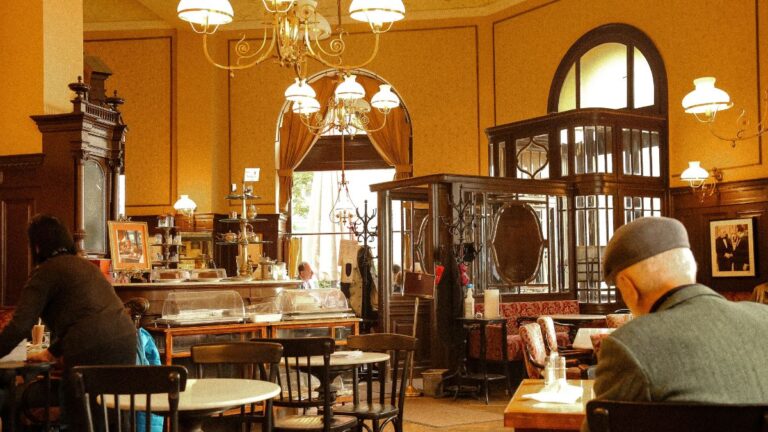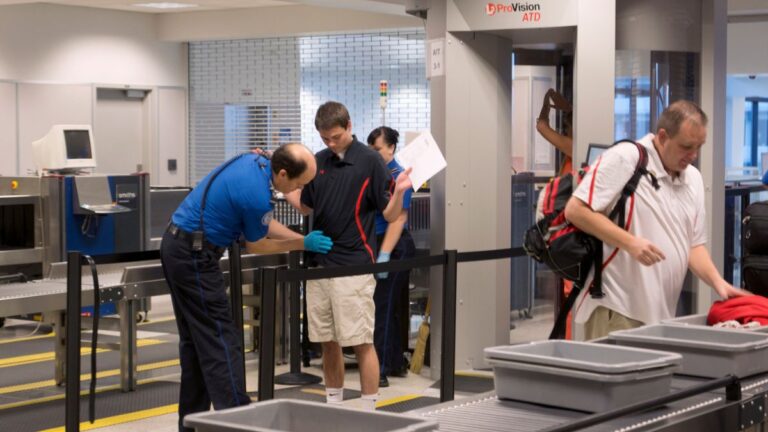Cash or Card: Navigating Currency in Switzerland

As participants in Amazon Associates and other programs, we earn from qualifying purchases. This comes at no additional cost to you. For more details, see our Affiliate Disclosure.
Switzerland, with its majestic Alps and serene lakes, is not just a haven for nature lovers, but also a financial hub known for its banking prowess. Yet, when it comes to day-to-day transactions in this beautiful nation, travelers often find themselves torn between using cash or card. This article dives into the nuances of navigating currency in Switzerland, helping visitors make informed choices during their stay.
HIGHLIGHTS
- In Switzerland, both cash and card are prevalent, with cash being especially useful in rural areas and smaller establishments.
- The Swiss Franc (CHF) is the official currency, known for its stability and trusted worldwide.
- ATMs are widespread in Switzerland, but tourists should be aware of potential foreign transaction fees from their home banks.
The Swiss Franc: An Overview
The Swiss Franc, often denoted as CHF or simply “Fr.”, is the official currency of Switzerland and Liechtenstein. It stands as one of the world’s most stable and trusted currencies, with a rich history intertwined with Switzerland’s famed banking sector.
With coins that range from 5 rappen to 5 francs and banknotes from 10 to 1000 francs, the Swiss Franc combines both tradition and modernity in its design and usage.
Whether shopping in cosmopolitan Zurich or sipping coffee by Lake Geneva, understanding the Swiss Franc is essential for any traveler aiming to navigate Switzerland’s economic landscape.
Advantages of Using Cash in Switzerland
Navigating the picturesque streets of Switzerland, one might notice a subtle blend of tradition and modernity, which extends to its financial transactions. Despite the rise of digital payments, there are undeniable advantages to using cash while traversing this alpine nation.
- Ubiquity of Acceptance: Especially in rural areas or smaller establishments, cash might be the only accepted form of payment. It ensures you can transact without hurdles, regardless of location.
- No Foreign Transaction Fees: Using foreign cards for every small purchase might accrue unwanted fees. Withdrawing a significant amount of cash can help tourists bypass these additional charges.
- Budget Management: Physical money allows for a tactile sense of spending, helping travelers be more conscious of their expenditures.
- Speed and Efficiency: At bustling markets or local eateries, cash transactions can often be faster than waiting for a card machine.
- Anonymity: Paying with cash leaves no digital footprint, providing users with a discreet purchasing experience.
- Cultural Experience: Engaging with the Swiss Franc firsthand can offer a deeper dive into the country’s culture and history.
Balancing between cash and card remains crucial, but understanding the merits of cash ensures a smooth Swiss journey.
The Rise of Cashless Payments: Swiss Card Systems
Switzerland, renowned for its traditional banking system, has not remained untouched by the global movement towards digitalization. The adoption of cashless payments has gained significant traction over the past years, introducing convenience and efficiency to both residents and visitors.
Contactless Technology: The advent of contactless payment methods, such as tap-to-pay systems, has simplified transactions. Many establishments, from high-end boutiques to local grocery stores, now possess terminals that support this quick and hassle-free payment mode.
Mobile Wallets and Apps: With the rise of smartphones, numerous mobile payment solutions have cropped up. Apps like TWINT, a Swiss mobile payment solution, allow users to link their bank accounts and pay through their mobile devices seamlessly.
Credit and Debit Cards: While not a new phenomenon, the usage of credit and debit cards continues to rise, with most establishments across Switzerland accepting major international card brands.
Digital Banking: Swiss banks, known for their robustness and reliability, have embraced the digital era. Many offer sophisticated online banking platforms and apps that provide users with a myriad of features, from transferring money internationally to managing multiple accounts effortlessly.
Safety and Security: Digital payment systems in Switzerland adhere to high security standards. Encryption technologies, multi-factor authentication, and real-time transaction monitoring are some measures in place to ensure user security.
Economic Implications: The shift towards cashless transactions has had profound implications for the Swiss economy. Reduced cash handling costs, increased transparency, and improved transaction speed have been some of the benefits.
However, with all its advantages, the rise of cashless payments also brings challenges, such as ensuring accessibility for all age groups and preventing cyber threats. As Switzerland leans into the future, the synergy between its historic banking foundations and cutting-edge digital solutions paints an intriguing financial landscape.
ATM Accessibility and Foreign Transaction Fees
In Switzerland, ATMs, locally known as “Bancomats”, are widespread and easily accessible. Whether in bustling urban centers like Zurich and Geneva or smaller towns nestled among the Alps, you’re likely to find an ATM within close proximity. These machines typically offer multilingual options, ensuring that international visitors can navigate the interface with ease.
While withdrawing Swiss Francs, tourists should be mindful of potential fees. If you’re using an international card, the local bank may charge a service fee for the withdrawal. On top of this, your home bank might impose a foreign transaction fee, which is typically a percentage of the total withdrawn amount.
It’s also worth noting that exchange rates provided by ATMs may not always be the most favorable, so it’s wise to be informed and perhaps consider withdrawing larger amounts less frequently to minimize cumulative fees.
For those looking to manage costs, some international banks have partnerships with Swiss banks which might offer reduced or waived fees. Before traveling, it’s a good practice to consult with your home bank regarding foreign transaction charges and any potential partnerships in Switzerland.
Tipping Etiquette: Cash or Card?
In Switzerland, tipping isn’t as deeply ingrained in the culture as it might be in other countries. Service charges are usually included in your bill, whether at restaurants, hotels, or taxis. However, if you’ve experienced exceptional service, it’s customary to leave a small token of appreciation.
When dining at a restaurant, it’s common to round up the bill to the nearest franc or leave a small amount, usually not exceeding 10%. If you’re paying by card, there might not always be an option to add a tip via the electronic terminal. In such cases, leaving cash ensures that your gratitude directly reaches the intended recipient.
Tipping in cash is also preferred in many other service scenarios, like hotel housekeeping or guided tours. It’s tangible, immediate, and always appreciated. Regardless of whether you choose to tip with cash or card, remember that the gesture of appreciation, no matter how small, always goes a long way in Switzerland.
Should You Use Cash or Card in Switzerland?
Switzerland, with its blend of old-world charm and modern amenities, offers a versatile landscape for financial transactions. In cities like Geneva, Zurich, and Lucerne, credit and debit cards are widely accepted, making it incredibly convenient for travelers to make purchases, dine out, or book accommodations. With the surge in contactless payments and mobile banking apps, digital transactions have become the norm in many urban centers.
However, as you journey deeper into the picturesque Swiss countryside, the rhythm changes. Small town eateries, local markets, and certain tourist attractions might have a preference for cash or may not accept cards at all. It’s in these moments that having Swiss Francs in your pocket can make a difference.
Foreign transaction fees are another factor to consider. While card transactions provide ease, they might come with additional costs, especially if your home bank doesn’t have favorable terms for international transactions. On the other hand, withdrawing cash from ATMs might also incur fees, but with a bit of planning, these can be managed effectively.
In conclusion, the decision to use cash or card in Switzerland isn’t binary. It’s more about striking a balance. Carrying a mix of both ensures you’re equipped for the bustling cityscapes and the tranquil mountain retreats, making your Swiss adventure seamless and enjoyable.
Safety Precautions: Keeping Your Money Secure in Switzerland
While Switzerland is renowned for its safety and low crime rates, travelers should still take measures to safeguard their money. Whether wandering through the cobblestoned streets of Bern or hiking the Alpine trails, certain precautions can ensure your financial peace of mind.
- Divide and Store: Avoid carrying all your cash in one place. Divide it between a money belt, your main luggage, and perhaps a daypack, ensuring you won’t lose everything at once.
- ATM Awareness: Opt for ATMs in well-lit areas or within bank premises. Always check for suspicious attachments which could be skimmers and shield your PIN during transactions.
- Notify Your Bank: Before your trip, inform your bank about your travel plans to prevent unexpected card blocks and to avail any possible international partnership benefits.
- Document Details: Keep a separate record of card numbers, expiry dates, and emergency contact numbers. This facilitates quicker actions in case of loss or theft.
- Stay Watchful: During transactions, ensure your card remains in sight to prevent unauthorized charges or cloning. Always retrieve your card promptly after payments.
By incorporating these measures, travelers can comfortably immerse themselves in Switzerland’s myriad attractions without undue financial concerns.






